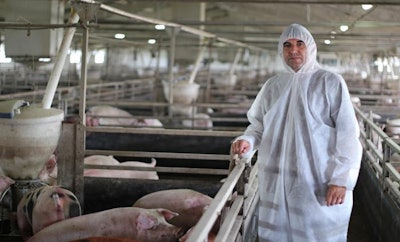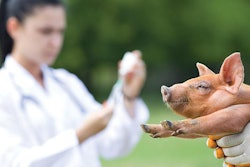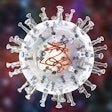
Despite its unprecedented scale, a former scientist at the Plum Island Animal Disease Center of New York says he’s not entirely surprised by the latest outbreak of African swine fever (ASF).
Daniel Rock, now a professor of pathobiology at the University of Illinois, studied ASF in the 1990s in hope of developing a vaccine for ASF. At the time, ASF was considered a primarily African problem that wasn’t a major concern for the U.S. But history — coupled with the growth of international trade and the relative ease with which ASF travels — had convinced Rock that ASF would surface again.
“We were always a little concerned about what would happen,” he said. “All domestic pigs are highly susceptible to this disease. And the potential for that to spread — it’s truly amazing when you think about the travel and trade that goes on today. The inadvertent contaminated piece of meat, clothing, could be a source of introduction. We were always concerned about the potential.”
The virus actually traveled from Africa to Europe in the 1970s, Rock said, where it persisted for nearly two decades. Given the scale of the current outbreak, and the prevalence of trade with China, Rock suspects ASF has finally become a global disease.
“We have a situation that is quite significant, and probably unprecedented, in that ASF is out of Africa for good,” he said. “It will pose a threat to Europe and the U.S. for a long time.”
Troubling vaccine trials
Two factors make ASF a particularly difficult disease to control, according to Rock. The virus is capable of traveling long distances because of its ability to survive extended periods outside a host organism, even in extreme environments. ASF is known to persist in feces and urine for days; in Spain, the virus persisted in slaughtered swine for six months. It has also proven difficult to develop an effective vaccine for ASF.
Researchers at Plum Island were able to attenuate the virus in the 1990s — that is, to engineer a strain of the virus that would trigger a protective immune response in vaccinated swine without causing illness. But there was a catch: The modified virus remained present in vaccinated animals much longer than normal, and the vaccinated animals became infectious, passing modified ASF to other swine.
Pigs infected by vaccinated swine did not immediately fall ill, but it’s not clear whether these swine remain unaffected long-term, Rocky said, especially if the virus mutates, as viruses are wont to do. More immediately problematic is pigs that acquire the modified virus from vaccinated animals test positive for ASF, making it difficult to identify and control outbreaks of the natural virus.
Until more sophisticated vaccines are brought to bear, Rock believes early detection and culling, not vaccination, remains the best means of controlling ASF in geographies where the virus has or may be newly introduced.
“In a non-endemic area, the vaccine would only be used under extreme conditions where you really felt you couldn’t control the disease by animal slaughter,” he said. “I don’t think that’s the kind of thing you’d have in a decision tree; you’d have to assess it very carefully.”
Rock said he was concerned about reports from China about the development of a vaccine, and that “they’re pretty close to putting them in the bottle.” From what he has read, he said, it would appear the vaccine is based on an attenuated virus similar to the one developed on Plum Island. He worried “tremendous pressure to do something” could lead to unintended consequences.
Limiting the spread
So long as ASF is caught early, it’s not difficult to limit the scale of an outbreak, Rock said. He believes the ASF outbreak in China likely went undetected — or unreported — for a period of time, allowing the virus to spread.
“This is not going to be cleaned up for a very long time,” Rock said. “The risk is going to be present for some time — I would say decades.”
When — not if — the virus arrives in western Europe and the U.S., Rock believes the way producers and governments respond will determine the fate of the outbreak. Early detection and action, he said, will be critical to containing the virus and preventing widespread infection.
“The key is to raise awareness and be on alert,” Rock said. “Think about biosecurity protocol. Those are the right kinds of steps to take.”
View our continuing coverage of the African swine fever outbreak.
















